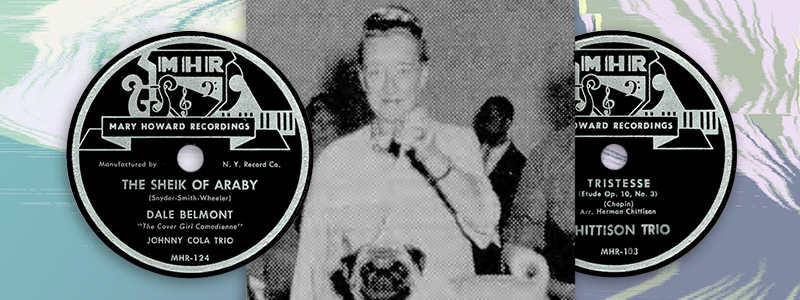
Women’s History Month: A Tribute to Recording Engineer Mary Shipman Howard
At ICB, we’d like to pay tribute to a pioneer in audio recording engineering – Mary Shipman Howard. One of the earliest known female recording engineers and one of the first women to own her own recording studio, Howard helped open the door for women to pursue careers in this emerging and exciting field.
A Passion for Sound
Born in 1911 in Hartford, Connecticut, Howard grew into a gifted musician, playing classical viola. Unfortunately, she developed arthritis at a young age, making it impossible to keep playing. She then became interested in the technical process of recording music. She said, “Since I always loved acoustical, mechanical things – the process of translating a sound wave into an electrical impulse and back into sound – I got really into recording.” She bought a recording machine and began cutting her own records.
The Path to Becoming a Recording Engineer
In 1940, at the age of 29, Howard moved to New York City and applied for an audio engineering job with NBC. Women were not allowed in the union at that time, so she was hired as a secretary. However, when World War II began, NBC’s studios became short-staffed as the male engineers went off to war, and the union reconsidered. Soon Howard made a name for herself at NBC as a master recording engineer, working with famous musicians such as big band leader Glenn Miller, Italian conductor Arturo Toscanini, and others.
Starting Her Own Recording Studio
In 1945, Howard created her own recording studio, Mary Howard Recordings, in the same building she lived in – three blocks from NBC. She worked at the studio part-time until she left NBC after the war. The studio quickly became in demand – drawing a number of prestigious clients such as composer Charles Ives. In 1947, Howard created her own record label (called MHR) and produced records for artists including The Herman Chittison Trio, Ethel Waters, Lucille Turner, and Dale Belmont. That same year, Time Magazine did an article on Howard and her studio.
Mastering the Best Recording Equipment
Howard invested in the best audio equipment of the time. She said, “I had all the best Ampex equipment, and I was the first private person ever to own a Scully lathe. Nobody else could afford it. I couldn’t afford it, either, but I got a loan from the bank.” Some of the studio’s other recording equipment included Van Eps lathe, Allied Cutting lathe, Presto 1-D Heads, and Langevin 101-A Amplifiers
Going to the Dogs
Howard closed her successful recording studio in 1955, when she tired of city life. She left New York City and moved back to Connecticut where she opened Sabbaday Dog Kennels where she bred pugs and became a respected judge of dog shows. Howard died in 1976 and will be forever remembered as a pioneer in audio recording engineering.
Training for Your Own Career as an Audio Recording Engineer
If you’re looking for a place to start building your own historic career as a recording engineer, the International College of Broadcasting (ICB) is a great place to start. Check out our hands-on program in Video Production/Recording Audio Engineering to train for careers such as sound technician, audio recording engineer, TV video editor, audio producer and music director/producer. ICB will prepare you for the real world and qualify you for an exciting and fulfilling career in a competitive industry. Contact us today to learn more or to schedule a consultation with our admissions department. Let’s make history together!

